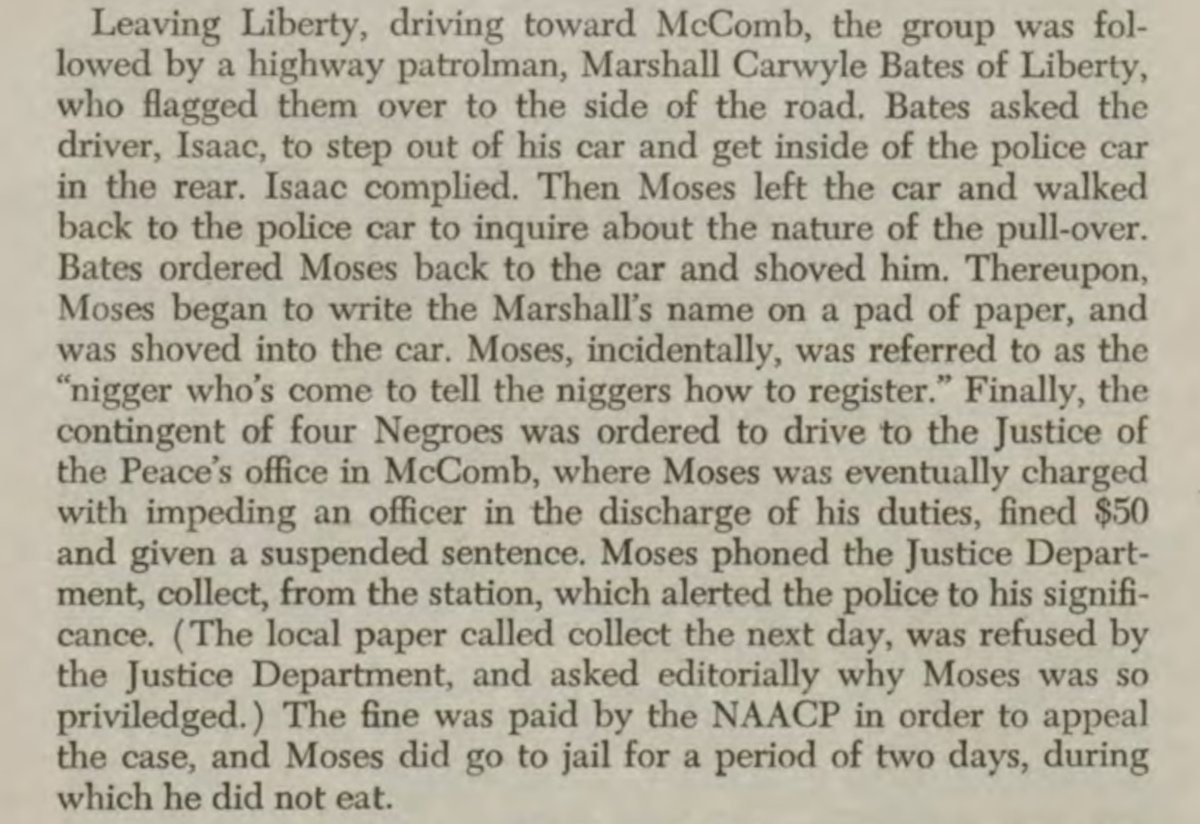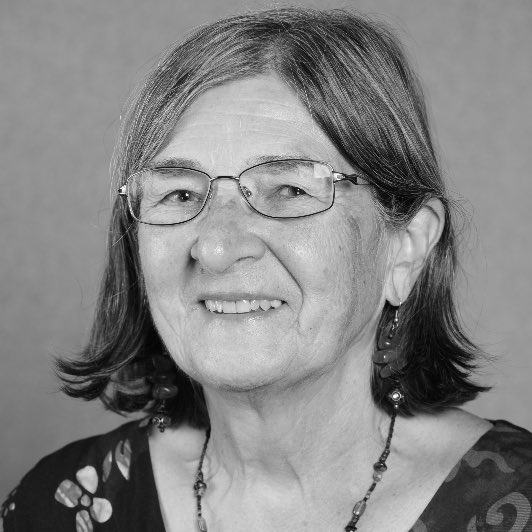
#SNCC101: In McComb, MS, SNCC organizers were often subjected to brutal force, blatant racism, and various other forms of violence at the hands of police officers, white nationalists, and the local judicial systems.
Bob Moses was no stranger to these harsh conditions. He moved to McComb in 1961 after spending the summer as a field organizer throughout that region and discussing the potential for a mass voter registration with Amzie Moore, a prominent NAACP colleague.
He worked alongside a group of local adults, high school students, and youth who helped with canvassing and the voter registration campaign. On August 15, 1961, Moses and a group of hopeful registrants were pulled over by police after being denied the right to register. 

Even though he was in fact physically assaulted by the cops, the “Justice of the Peace’s” office charged Moses with “impending an officer in the discharge of his duties.” He was fined $50 (paid by the NAACP), and given a 2-day sentence.
On August 29, Bob Moses attempted to register two more people at the registrar’s office in Liberty. “They were met by Billy Jack Caston (cousin of the sheriff and son-in-law of State Representative Eugene Hurst) who was accompanied by another cousin and the son of the sheriff."
Caston smashed Moses across the head and dropped him to the street. His cuts required 8 stitches. Moses filed charges against Caston, but to no avail. He was forced to leave the trial early in an effort to escape a mob of 150 white nationalists.
Not too long after this incident, Herbert Lee (one of Moses’ collaborators), was murdered by Mississippi State Representative Eugene Hurst. The mercenary-politician was never charged and the only witness was found dead: snccdigital.org/events/herbert…
On October 4, a student walkout took place in protest of Lee's murder and the expulsion of activist classmates. Most of the participants were under the age of 18. The march started in downtown McComb, went through Black neighborhoods for families to watch, and ended at City Hall. 

The protestors were met with a combination of police officers and white nationalists. As the courageous youth prayed at the steps of City Hall, a white man tried to run them over with his vehicle. Sound familiar? washingtonpost.com/investigations…
While the protestors were being arrrested, a white nationalist began choking and gauging the eyes of #SNCCVeteran Robert Zellner. Bob Moses and Charles McDew attempted to protect Zellner, but were swiftly “struck and dragged into the station by police.”
Here’s what Judge Robert W. Brumfield of McComb's Police Court had to say about SNCC’s presence in McComb: 

Upon their release, Moses, McDew, and Zellner continued to teach the students that were expelled.
Then, Moses left McComb in December 1961 for Jackson where he planned to work on the congressional campaign of R.L. Smith, the first African American to run since Reconstruction.
Then, Moses left McComb in December 1961 for Jackson where he planned to work on the congressional campaign of R.L. Smith, the first African American to run since Reconstruction.
By the start of 1962, SNCC decided to withdraw from McComb, MS: snccdigital.org/events/sncc-le…
In the spirit of #BlackAugust, we remember the great sacrifices of each and every #SNCCVeteran, #FriendsOfSNCC, and other #MovementPioneers.
For more information on Bob Moses, visit: snccdigital.org/events/bob-mos…
See also: “Revolution in Mississippi,” Special Report by Tom Hayden: crmvet.org/info/62_hayden…
• • •
Missing some Tweet in this thread? You can try to
force a refresh





